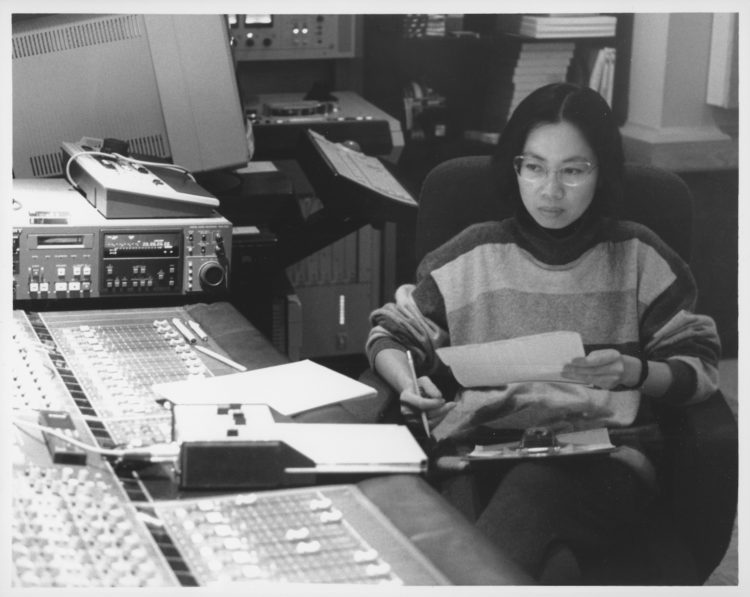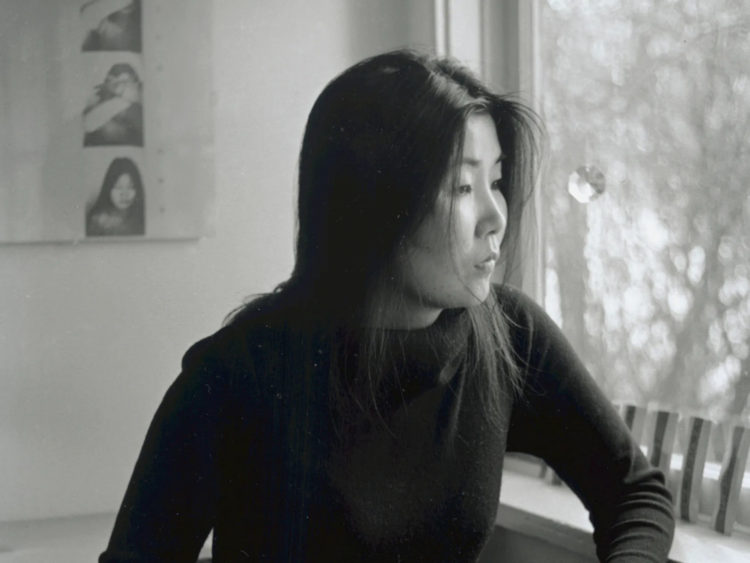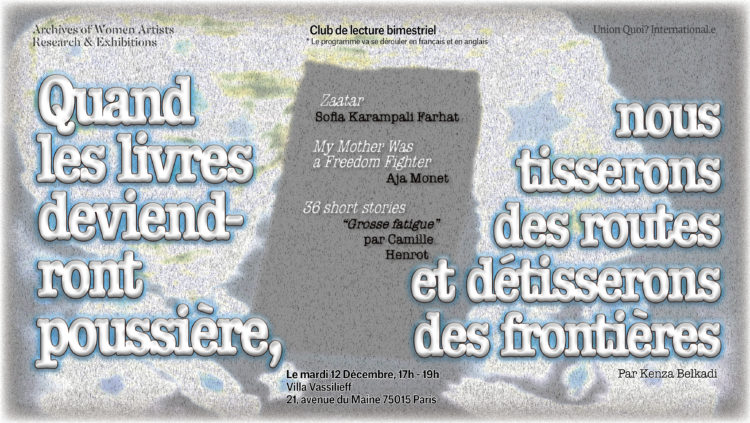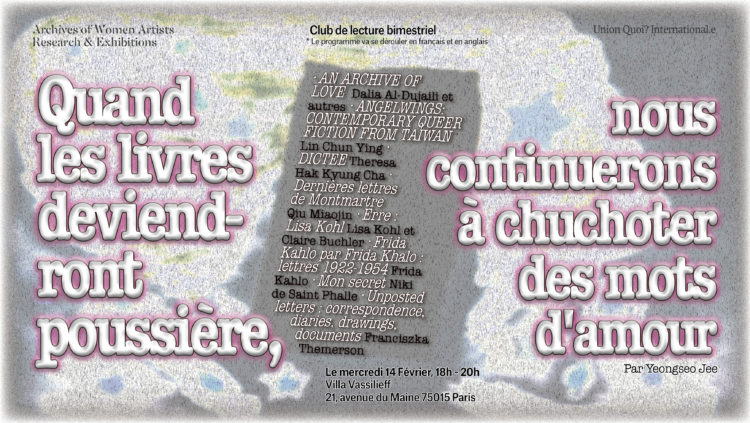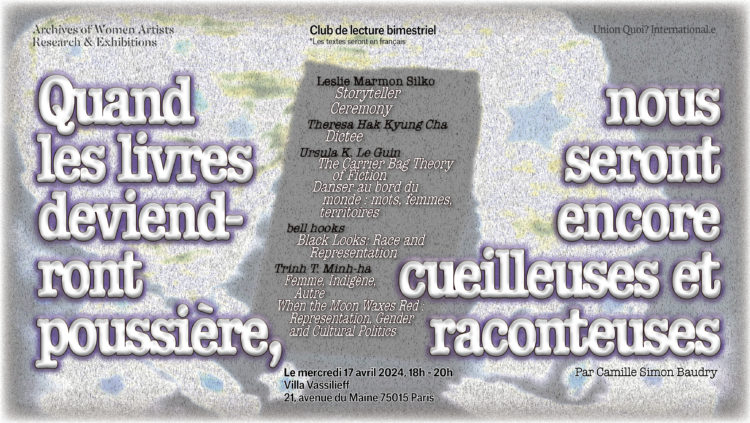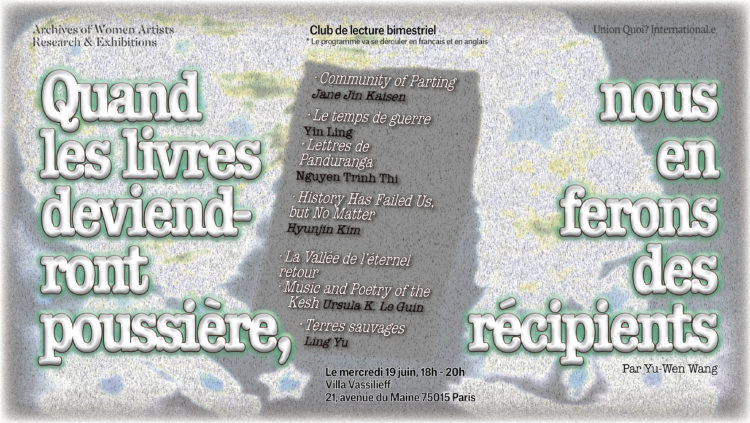A Place for Artists
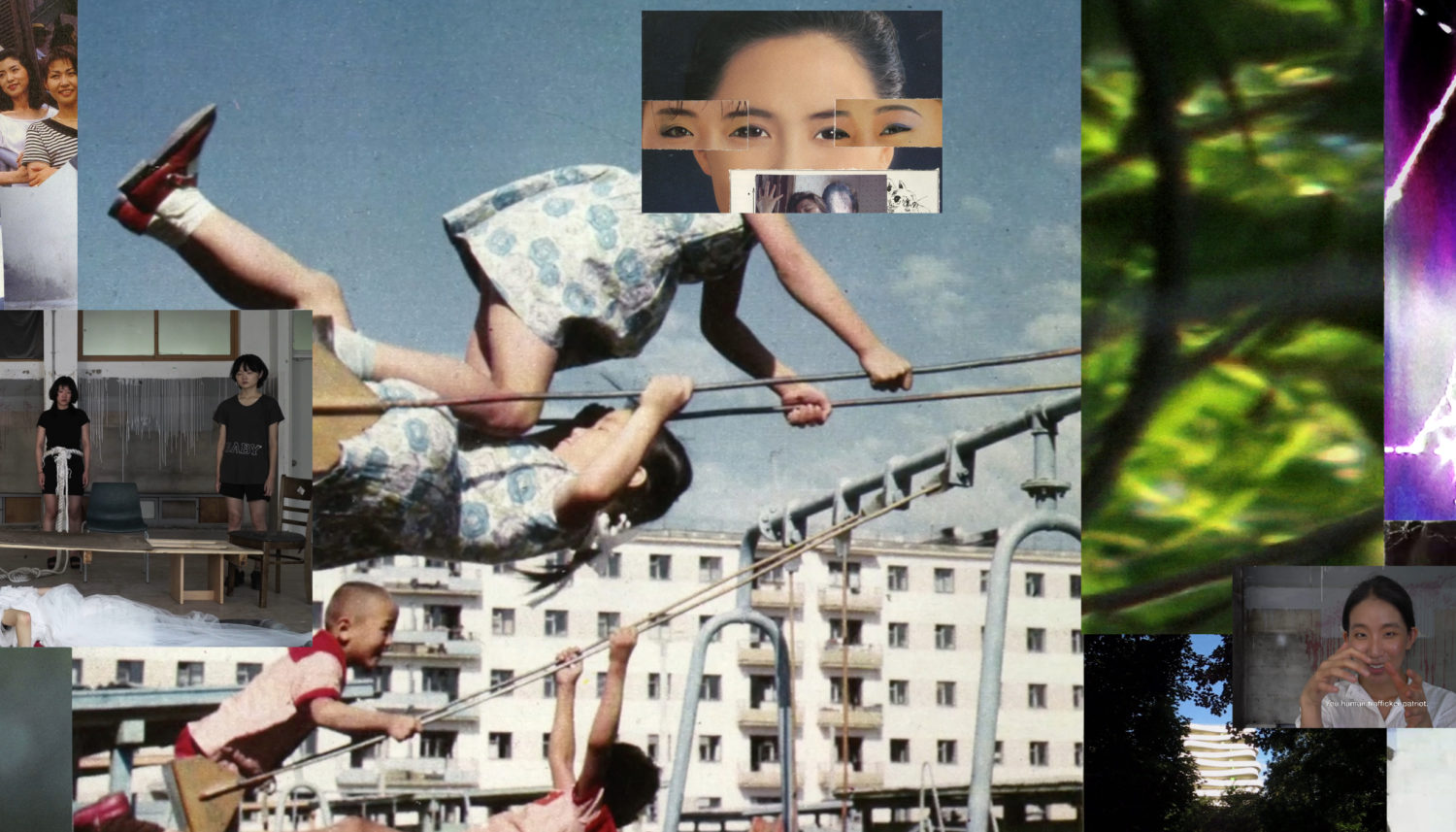
Dear Kim Sisters in 1959 / Language / So Many Love Stories © Union Quoi? International·e
On the weekend of September 16 and 17, 2023, AWARE welcomed Union Quoi? International·e at Villa Vassilieff for an event entitled “Murmures de diseuses” to celebrate European Heritage Days. This intervention focused on activating AWARE’s space and extending its role as a center for documentation, research, and mediation through open workshops that question matrilineal transmission.
A set of four short films was continuously shown on the first floor, all directed by members of Union Quoi? International·e, introduced by Camille Simon Baudry. Three of them were available online for a month.
Camille Simon Baudry is making her film So Many Love Stories permanently available on the AWARE website. Created in dialogue with the work of Theresa Hak Kyung Cha, this film is the result of extensive engagement with AWARE’s archives.
« May my story be beautiful and unwind like a long thread… »
Leslie Marmon Silko as quoted by Trinh T. Minh-ha in Woman, Native, Other, p.148 (Indiana University Press)
SO MANY LOVE STORIES · Camille Simon Baudry · 7 min · 2023 · English with FR or EN subtitles enabled
Waves, and then silence, and the sound of your voice. The first words I ever read from Theresa Hak Kyung Cha were probably those quoted by Trinh T. Minh-ha in her book Woman, Native, Other. It was last spring. But my story with Cha might be older. We do not choose to bond, nor to be crossed by someone’s work. Maybe two years ago, when Yeongseo, who does the voice of this film, made me understand the importance of Cha Hak Kyung, there was already this “wind passing through our flesh”: the deep feeling, undoubtedly quite sororal, of solidarity, that something was happening. We do not choose our mothers. We experience them, we recognize them. The very little that I knew about Cha and her work already struck me with an acute intensity, not because it was a “shock” to meet her or to discover her work, but because it was a “shock” to see how the little I knew was enough to understand so many miles of common and private stories: all the times of writing, of wakefulness, by the light of a lamp, the evenings of pain, the determination… In Minor Feelings, Cathy Park Hong clearly evokes the truth or the authentic and direct character of Cha’s writing, her way of grasping languages, to circumvent their modalities, deconstruct the fantasy of perfect English and construct her own mythology. She also spoke about the circumstances of Cha’s death, which violence, unqualified, unrecognized, still constitutes today an open wound in the imaginary of Asian-American women, and daughters. I wanted to make a film that allows this heritage to breathe, a mouth-to-mouth, like the one made by Cha while reciting the Korean vowels in her video poem Mouth to Mouth, from among the mists of television’s static, before the sound of water emerges. In one of the extracts from Woman, Native, Other that we chose to introduce Murmures de diseuses, these words from Trinh T. Minh-ha precede an extract from Dictée, the iconic Cha Hak Kyung book: “To listen carefully is to preserve. But to preserve is to burn, for understanding means creating.” To show someone that we’ve listened to them, that we’ve understood them, we have to respond, and to respond, we have to say something else, something that is intimately impacted by our exchange: the expression, undoubtedly peripheral but eminently vivid, of the sensitive world that we share. This is how I conceived this film.
Camille Simon Baudry is a filmmaker, artist and researcher born in the Mauges region of France in 1998. Over the past few years, she has been developing an open cinema project, driven by decompartmentalizing representations that challenge the usual ways of thinking, designating and representing the “I”, the “other” and the “environment” in the West. Her itinerary and quest for new or renewed ecological visions thus found a new web of relationships, based on recognition of marginal and silenced lives, and connection with feelings (human and earthly) that are commonly neglected.





